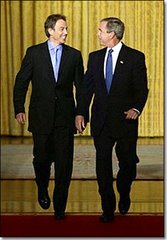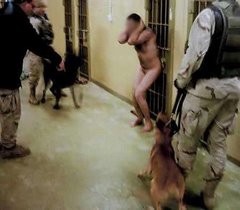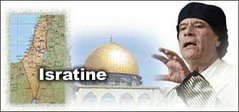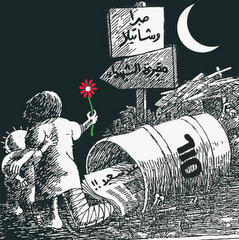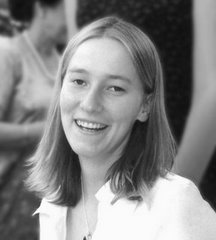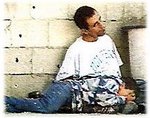OTTAWA - Prime Minister Stephen Harper, the man who promised to bring the contentious same-sex marriage issue back to the Commons, was absent from the chamber and had no plans to defend traditional marriage as debate opened Wednesday on whether to revoke Canada's same-sex marriage law.
The Commons was virtually empty, with about 20 of 308 members showing up, including Conservative House leader Rob Nicholson.
He acknowledged at the onset that ''some members may question why it's necessary to engage this House on this matter.''
Nicholson introduced a motion ''to call on government to introduce legislation to restore the traditional definition of marriage without affecting civil unions and while respecting existing same-sex marriages.''
As he led the government's case, Nicholson spent little time arguing why the gay-marriage law should be revoked, focusing instead on the fact that the government made an election promise to revive the issue.
''Given the importance of marriage in our society and its importance to Canadians, we made a commitment in the last election to ask parliamentarians whether they wished to revisit this issue,'' Nicholson said.
MPs were to debate the issue until late Wednesday night, with a vote scheduled for today.
The motion is expected to fail, with the minority Conservatives finding little support on the opposition benches.
At least a dozen Conservatives are also expected to vote against the government, including cabinet ministers John Baird, Jim Prentice, Loyola Hearn and David Emerson.
On the Liberal benches, it is anticipated that only handful of MPs will vote to reopen the gay marriage issue.
Liberal Leader Stephane Dion, calling the prospect ''an attack against the charter,'' had pondered imposing a whipped vote, meaning that Liberal MPs would have had to vote against the government or face discipline.
But after adding up the numbers and concluding there is virtually no chance the vote will succeed, Dion said Wednesday that Liberals will be able to vote as they wish so that Harper cannot accuse him of gagging his MPs.
''A free vote will prove that the overwhelming majority are not willing to go with the government on this issue and then that will be the end of the story,'' Dion said.
The NDP and the Bloc Quebecois are imposing party discipline and voting en masse against the motion.
Harper promised gay-marriage opponents on the first day of last winter's election campaign to hold a Commons vote on whether to re-open debate on Canada's 2005 law, a move that critics say mobilized his socially conservative supporters.
Liberal MP Bill Graham, leading the Liberal assault on the motion, dismissed it as a stunt that carries no weight and said that if the government was serious ''they would have introduced legislation.''
Graham said the only way for the government to restore the traditional definition is to use the Constitution's ''notwithstanding clause,'' which allows governments to override court decisions for up to five years.
The previous Liberal government, reacting to a string of court rulings, passed a law in June 2005 that rewrote the traditional definition of marriage. The vote in the Commons succeeded 158-133.
The Commons was virtually empty, with about 20 of 308 members showing up, including Conservative House leader Rob Nicholson.
He acknowledged at the onset that ''some members may question why it's necessary to engage this House on this matter.''
Nicholson introduced a motion ''to call on government to introduce legislation to restore the traditional definition of marriage without affecting civil unions and while respecting existing same-sex marriages.''
As he led the government's case, Nicholson spent little time arguing why the gay-marriage law should be revoked, focusing instead on the fact that the government made an election promise to revive the issue.
''Given the importance of marriage in our society and its importance to Canadians, we made a commitment in the last election to ask parliamentarians whether they wished to revisit this issue,'' Nicholson said.
MPs were to debate the issue until late Wednesday night, with a vote scheduled for today.
The motion is expected to fail, with the minority Conservatives finding little support on the opposition benches.
At least a dozen Conservatives are also expected to vote against the government, including cabinet ministers John Baird, Jim Prentice, Loyola Hearn and David Emerson.
On the Liberal benches, it is anticipated that only handful of MPs will vote to reopen the gay marriage issue.
Liberal Leader Stephane Dion, calling the prospect ''an attack against the charter,'' had pondered imposing a whipped vote, meaning that Liberal MPs would have had to vote against the government or face discipline.
But after adding up the numbers and concluding there is virtually no chance the vote will succeed, Dion said Wednesday that Liberals will be able to vote as they wish so that Harper cannot accuse him of gagging his MPs.
''A free vote will prove that the overwhelming majority are not willing to go with the government on this issue and then that will be the end of the story,'' Dion said.
The NDP and the Bloc Quebecois are imposing party discipline and voting en masse against the motion.
Harper promised gay-marriage opponents on the first day of last winter's election campaign to hold a Commons vote on whether to re-open debate on Canada's 2005 law, a move that critics say mobilized his socially conservative supporters.
Liberal MP Bill Graham, leading the Liberal assault on the motion, dismissed it as a stunt that carries no weight and said that if the government was serious ''they would have introduced legislation.''
Graham said the only way for the government to restore the traditional definition is to use the Constitution's ''notwithstanding clause,'' which allows governments to override court decisions for up to five years.
The previous Liberal government, reacting to a string of court rulings, passed a law in June 2005 that rewrote the traditional definition of marriage. The vote in the Commons succeeded 158-133.






